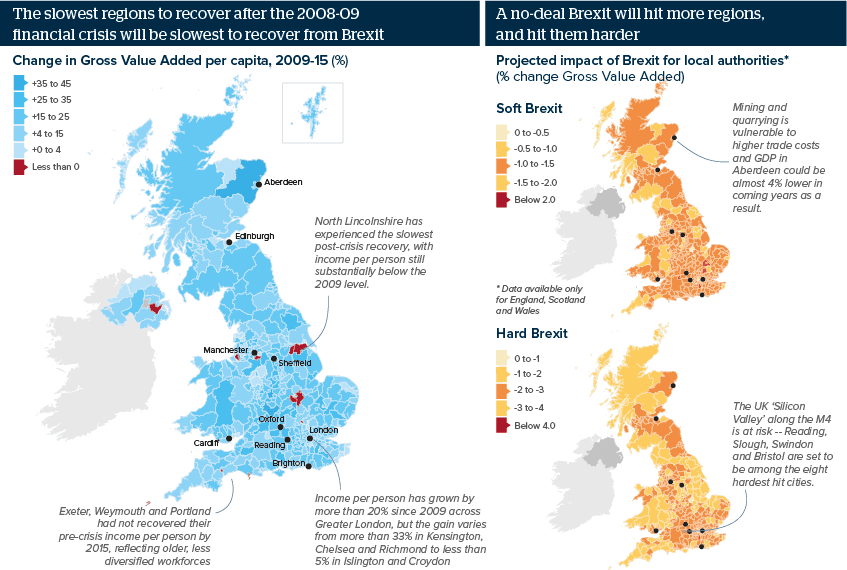Brexit will exacerbate UK regional inequality
Prosperous regions will be most affected by Brexit but will also recover faster, similarly to after the 2008-09 crisis
Source: Centre for Economic Performance, Centre for Cities, Office of National Statistics, Oxford Analytica
Outlook
The UK fiscal contribution to the EU will end after Brexit but non-tariff barriers will rise, EU integration will end and if there is no deal there will be bilateral tariffs and more non-tariff barriers.
Supply chains are complex in knowledge-intensive industry and services sectors and will struggle to replace foreign supply. London, the South East and other urban areas will suffer as more workers are employed in high-tech sectors including business, financial services and high-tech industry.
Less knowledge-intensive sectors will more easily switch suppliers, reducing the impact, but in the longer term higher-skilled regions will adjust quicker, leaving less prosperous regions further behind.
Impacts
- Edinburgh is set to be the sixth hardest-hit city according to the Centre for Cities as 21% work in private knowledge-intensive services.
- The UK Trade Observatory splits the model by residents/workers; in Streatham 650 jobs may go, but 2,250 residents/commuters may lose jobs.
- Manchester, Leeds, Bristol and Birmingham areas see a similar trend and policy will need to bolster suburbs further out as well as cities.
- City of London may lose the most GDP but will recover fast as 7.3% work in high-tech (UK 4.9%) and 57% of 25-64-year-olds have a degree.
See also
- Brexit will continue to undercut UK public policy - May 3, 2019
- EU to United Kingdom moves will fall under any Brexit - May 1, 2019
- Brexit risks derailing record UK job market momentum - Apr 24, 2019
- Urban-rural divide is growing in main EU countries - Apr 23, 2019
- Japan’s firms will not rush to exit the United Kingdom - Mar 11, 2019
- Rising living costs will hasten ‘high streets’ decline - Jul 9, 2018
- More graphic analysis
